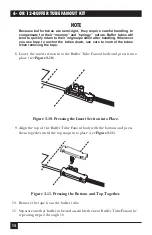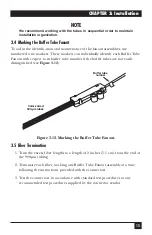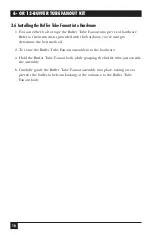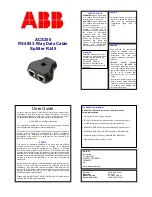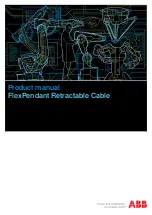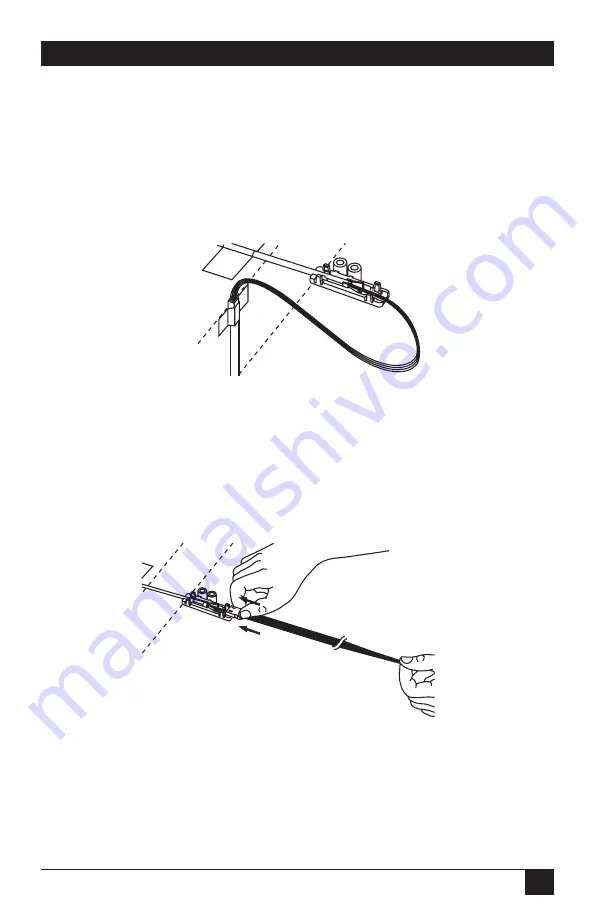
13
CHAPTER 3: Installation
6. Carefully pull the fibers out of the tube ends to take up most of the excess
length between the Buffer Tube Fanout body and the 900-µm assembly.
NOTE
Leave a small fiber loop between the Buffer Tube Fanout body and the
900-µm assembly to prevent fiber breakage during later steps in this
procedure (see Figure 3-8
).
Figure 3-8. Leaving a Loop to Prevent Fiber Breakage.
7. Untape the 900-µm assembly from the table edge. Carefully slide the assembly
while gently pulling the bare fibers protruding from the 900-µm tube ends
until the assembly is above the fanout body (see
Figure 3-9
).
Figure 3-9. Pulling the Assembly.
At times the fibers will twist as a group when sliding the 900-µm assembly
toward the buffer tube. Rotate the 900-µm assembly opposite the direction of
twist until the fibers straighten out. Severe twists left in the fibers could
exhibit long term micro-bending effects on the fiber performance and add
loss.
Summary of Contents for EFN06-24
Page 3: ......
















